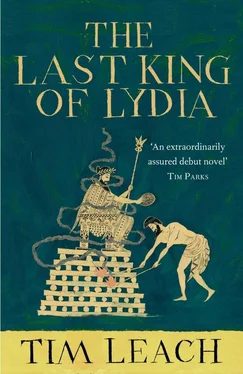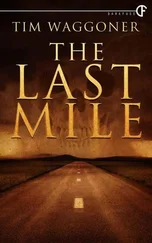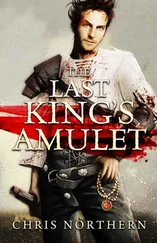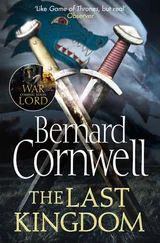Tim Leach - The Last King of Lydia
Здесь есть возможность читать онлайн «Tim Leach - The Last King of Lydia» весь текст электронной книги совершенно бесплатно (целиком полную версию без сокращений). В некоторых случаях можно слушать аудио, скачать через торрент в формате fb2 и присутствует краткое содержание. Год выпуска: 2013, ISBN: 2013, Издательство: Atlantic Books Ltd, Жанр: Исторические приключения, на английском языке. Описание произведения, (предисловие) а так же отзывы посетителей доступны на портале библиотеки ЛибКат.
- Название:The Last King of Lydia
- Автор:
- Издательство:Atlantic Books Ltd
- Жанр:
- Год:2013
- ISBN:9780857899200
- Рейтинг книги:5 / 5. Голосов: 1
-
Избранное:Добавить в избранное
- Отзывы:
-
Ваша оценка:
- 100
- 1
- 2
- 3
- 4
- 5
The Last King of Lydia: краткое содержание, описание и аннотация
Предлагаем к чтению аннотацию, описание, краткое содержание или предисловие (зависит от того, что написал сам автор книги «The Last King of Lydia»). Если вы не нашли необходимую информацию о книге — напишите в комментариях, мы постараемся отыскать её.
The Last King of Lydia — читать онлайн бесплатно полную книгу (весь текст) целиком
Ниже представлен текст книги, разбитый по страницам. Система сохранения места последней прочитанной страницы, позволяет с удобством читать онлайн бесплатно книгу «The Last King of Lydia», без необходимости каждый раз заново искать на чём Вы остановились. Поставьте закладку, и сможете в любой момент перейти на страницу, на которой закончили чтение.
Интервал:
Закладка:
A sound from the courtyard made Isocrates look back to Maia and Gyges. He saw her crouch down by one of the piles of rubbish that were scattered on the ground. It was not until she started moving backwards, still crouched, that he saw she had found a stray dog hiding there. She coaxed it out with patient words and gestures, and it came forward warily, blinking at the sun.
It was an ugly thing, its coat uneven with mange, its left ear little more than a ribbon of scarflesh from one fight too many. Maia led it past Gyges. The boy ignored it at first, but when it drew close, he reached down and ran a shuddering hand through its coat, gentle and forceful in turn. At his touch, the dog turned back and licked at his hand, a brief moment of affection, before it wandered away, sniffing at another pile of rubbish for some stray bone or hunk of rotten meat to chew on.
Gyges smiled, a brief, brilliant smile, and gave a gasping noise that might have been his version of a laugh. With a motion as natural as it was unexpected, he reached out and took Maia’s hand. She was too surprised to react or pull away, and Gyges passed a finger over her palm, once, before he started back, turned away, and wandered to the other side of the courtyard as though nothing had happened. Isocrates looked up to the balcony, and saw that the king had averted his eyes from this sight.
Taking his opportunity, Isocrates walked across the courtyard. Maia turned away from him as he approached, and curled one hand behind her back. Without slowing as he walked past, he reached out to her and, for an instant, let his fingers pass over hers. A passing touch and he was gone, walking between the guards and through the doorway to another quarter of the palace. He wondered how many days it would be before he could steal another touch from her.
Before he went back into the palace and back to his duties, he risked a glance over his shoulder, to see if Croesus had seen him. But the king had gone.
4
That night, Croesus dreamed with the clarity of a prophecy.
He dreamed that he was born deep under the earth. He passed centuries in the still dark, feeling the slow expansion and contraction of the ground beneath him, listening to the discordant sounds that echoed down from the surface as cities rose and fell, seas were born and died. He rested, and was at peace within the earth.
But then light and air broke into his home. Bronze picks cut him away, loaded him onto carts, and took him from the place of his birth. He was a piece of iron, removed from his mountain tomb to become a slave to men. He travelled for many days over mountains and hills, through small towns and villages where blacksmiths and tradesmen tried to buy him. His owners would not sell; he was of a noble lineage, too good to be beaten into a horseshoe or part of a plough. Soon, the convoy crested a hill that was familiar to him from his waking life, and looked down on the city of Sardis.
In the armourer’s forge, he sweltered in the fire. He turned red, then white with the heat, but he felt no pain, even as the hammer fell on him and pounded him flat. He felt his form become sharper and sleeker. He was changing into something deadly, something beautiful.
He had to await his destiny, hanging in an armoury deep within the palace. Somehow, the wait in the armoury, though it spanned only a few years, was far more painful than the centuries he had slept in the earth. Could there be a worse fate than to be moulded into something remarkable, only to waste away the years unused, to rust and break and be discarded? Occasionally his metallic pulse would quicken as human hands took hold of him, but it was only to be cleaned and sharpened or paraded in ceremony. At night, when men slept but forged iron could talk freely, he and his companions in the armoury spoke of the duels they would fight, the great battles that they would win, if only they were given the opportunity.
He witnessed the coronation of his waking self as king of Lydia. Borne by a soldier on the walls of Sardis he watched the parade go past, watched as the new king waved to the cheering crowds and smiled at the chanting of his name. As a man, that day had meant everything to him. As a weapon he felt only the hope that he might finally go to war. A new king always went to war.
The wars came, but he remained in his armoury, growing older and weaker. As the years passed, some of his fellows descended into a senile madness, boasting of wars they had never fought, claiming to have been the personal weapons of renowned warriors who had died centuries before. Some rusted, were taken away, and never returned. Croesus wondered if he would prefer that fate, to be cast out to rust and dissolve back into the earth, rather than this eternity of waiting. But that was not his destiny.
He was taken from the armoury, bundled with half a dozen of his fellows, covered with hide and strapped to the side of a pack animal. For days he jolted along the road, listening to the excited chatter of his companions, roused from their stupor and going at last to war. He lived in darkness, shielded from the elements, waiting. He was reminded of his first days beneath the earth, and he prayed that the journey would not end, that he would remain for ever in this same exquisite state of anticipation.
But the battle came at last, the air alive with the screams of fearful men, the animal cries of the enemy, the sound of iron against iron, iron through skin, iron into bone. He circled the edges of the conflict, waiting patiently. He felt the practised hand that gripped him with a dry palm, waiting to make a throw that would count.
The entire world stood still. His master let him fly, and he felt the air roar, sensed a single figure growing large and filling his world.
He struck deep, tasted blood. Buried in flesh and bone, he could feel the dying heart beat through him, and knew that the wound was mortal. His master’s hand gripped him once more, and with a single motion he was pulled loose and hung suspended above the body of his enemy. He saw the face of the man he had killed.
It was his son, Atys.
Croesus woke. He sat alone, his wife far away in her own private quarters, and shook silently in his bedclothes until he found the strength to move. He went to a basin of water and washed his face, swallowed a goblet of wine. He could still feel his son’s blood on his face, still taste it on his lips.
He cried out for his guards. They entered the room in a moment, checking the corners, prodding the curtains with the tips of their spears, their hands running over Croesus to search for a hidden wound. He waved them away. ‘Listen to me.’ He voice trailed off, and his eyes flickered across the bodies of his guards. He saw the iron daggers and iron short swords strapped to their waists, the iron-headed spears they clutched in their hands. He thought of the thousands of iron weapons in Sardis, of a death waiting in every part of the palace.
‘Leave all your weapons here,’ he said. ‘Then go to my son and guard him with your lives.’
They exchanged uncertain looks. ‘Guard your son without our weapons?’ one of them asked.
‘Yes,’ Croesus said, ‘exactly that. Go, now.’
It was not for them to question the king further, and so they placed their weapons before him and left to obey their orders. Croesus sat on the stone floor and ran his hands over the blades, trying to feel for anything that felt familiar. He held each one up in turn to his ear, as though hoping that it might whisper its name to him. In his dream, each of the weapons had spoken with a different voice, and the individual patterns of the iron had been as diverse and familiar to him as the faces of his own family. Now they all looked the same, had no voice of iron to mark them apart. He spent the rest of the night crouched there, cradling the blades in his arms, trying to discover if one of them might be the weapon that would kill his son.
Читать дальшеИнтервал:
Закладка:
Похожие книги на «The Last King of Lydia»
Представляем Вашему вниманию похожие книги на «The Last King of Lydia» списком для выбора. Мы отобрали схожую по названию и смыслу литературу в надежде предоставить читателям больше вариантов отыскать новые, интересные, ещё непрочитанные произведения.
Обсуждение, отзывы о книге «The Last King of Lydia» и просто собственные мнения читателей. Оставьте ваши комментарии, напишите, что Вы думаете о произведении, его смысле или главных героях. Укажите что конкретно понравилось, а что нет, и почему Вы так считаете.












